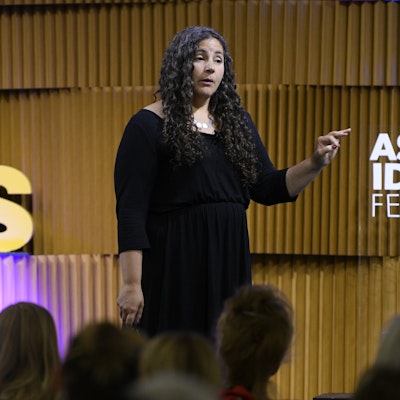Explore
Search results


Arthur Brooks on bringing the most happiness to the most people.

It’s hard to be dispassionate about money. Whether we have a lot, not enough, or a comfortable amount of it, our emotional relationship with money is often fraught. Fascinating research on this subject reveals that luxury cars often provide no more pleasure than economy models, that commercials can actually enhance the enjoyment of watching television, and that residents o...


Yale's Laurie Santos gives a crash course on how to feel less stressed and depressed.

From the ancients to our forefathers to our modern-day achievement-obsessed culture, the question of what makes us happy continues to perplex. Why are we eternally fascinated by the pursuit of happiness, and will we ever agree about what makes us truly happy?


New research suggests that much of what people think about happiness is wrong.

Author and Harvard professor Arthur Brooks introduces the exploding science of happiness, which combines philosophy, psychology, and neuroscience into a set of actionable strategies for everyday life. Learn how emotional self-management can transform the way we experience the world and improve all facets of life.

The United States is not a particularly happy country, according to the World Happiness Report. Issued annually by the UN Sustainable Development Solutions Network, the report puts the USA in 18th place, just above the United Kingdom and surpassed by all the Scandinavian countries, Costa Rica, Canada, and Australia, among others. The rankings are based on measures of incom...

Over a year of global isolation and calamity, many of us have experienced disappointment, loss of control, loneliness and isolation, and uncertainty about the future. Happiness has, perhaps, seemed elusive. And yet, Harvard social scientist Arthur Brooks argues, the pandemic has offered us ways to grow, in ways most unexpected, and given us life lessons that may actually h...


How can we avoid the middle age blues and feel purposeful later in life?

Most people think that happiness has four sources: the sensory pleasures (from art to chocolate), material wealth, romantic relationships, and children. But recent research suggests that much of what people think about happiness is wrong. Daniel Gilbert, author of “Stumbling on Happiness," hosts this symposium in which experts discuss what science has discovered about each...


AITG is taking off a couple of weeks for the holidays. We'll be back in January with new episodes. This week, we revisit an earlier episode — A Formula for Happiness. Want to be happy? Arthur C. Brooks, president of the American Enterprise Institute, has read all of the books and studies about what makes us happy — so you don't have to. By marrying ancient wisdom and new d...


Arthur Brooks on bringing the most happiness to the most people.


People have been thinking about happiness for thousands of years. In fact, ancient thinkers came up with strategies for cultivating pleasures over a lifetime, or creating a lasting capacity to take joy in the world. This long-term flourishing is different from immediate pleasures — it’s a richer notion of happiness. Laurie Santos is a professor of psychology at Yale and an...

Plus — why Shakespeare is still relevant and year-end reads from Festival speakers


Looking around and experiencing the suffering and injustice in the world can make it difficult to believe that happiness exists. But the Judeo-Christian tradition teaches that it’s sinful to succumb to despair, and we have a responsibility to ourselves and others to try and find our way through dark times. On the other hand, when you avoid suffering, you avoid meaning, and...


New research suggests that much of what people think about happiness is wrong.

What are the secrets to achieving authentic happiness? What activities and experiences lead to true flourishing? And why does happiness often feel so out of reach? Recent probing into these questions has found that the answers come not just from contemporary scientific studies in psychology and neuroscience but also from insights that philosophers and thinkers had centurie...


When our bank accounts are full, are we happier? Does a pay raise at work equal increased joy?


People have been thinking about happiness for thousands of years. In fact, ancient thinkers came up with strategies for cultivating pleasures over a lifetime, or creating a lasting capacity to take joy in the world. This long-term flourishing is different from immediate pleasures — it’s a richer notion of happiness. Laurie Santos is a professor of psychology at Yale and an...


Why are certain countries, cities, and towns happier than others?







